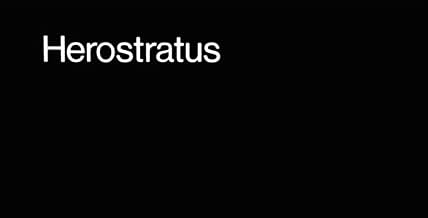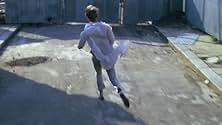Füge eine Handlung in deiner Sprache hinzuWhen young poet Max (Michael Gothard) hires a marketing company to turn his suicide-by-jumping into a mass-media spectacle, he finds that his subversive intentions are quickly diluted into a... Alles lesenWhen young poet Max (Michael Gothard) hires a marketing company to turn his suicide-by-jumping into a mass-media spectacle, he finds that his subversive intentions are quickly diluted into a reactionary gesture, and his motivations are revealed as a desperate attempt to seek atte... Alles lesenWhen young poet Max (Michael Gothard) hires a marketing company to turn his suicide-by-jumping into a mass-media spectacle, he finds that his subversive intentions are quickly diluted into a reactionary gesture, and his motivations are revealed as a desperate attempt to seek attention through celebrity.
- Sandy
- (as Mona Chin)
- Radio Presenter
- (Synchronisation)
- Poet
- (Synchronisation)
- Patient on Bed
- (Nicht genannt)
Empfohlene Bewertungen
A film by Don Levy (1967)
Herostratus is the first feature film by Don Levy whose short films have been distinguished by their original technique and penetrating approach to their subject.
Herostratus is in the same tradition. The story, on the surface, seems simple. A young man wants to commit suicide publicly and in the presence of as many people as possible. He persuades a public relations firm to exploit the event then he changes his mind but by this time other forces are active and he is no longer in control of the situation.
Levy exposes his characters and their motives layer by layer. He does so in the context of a society whose aims and aspirations are centered on private gain and personal success, virtually at any price; in this society the idealism and humanism which can unify a country after a war are rapidly displaced by destructive self-interest. It is not enough, in Levy's view, to say that war is hell. One must go deeper, find the causes, and attack them.
Herostratus, essentially a film d'auteur, is technically dazzling, but never in a gratuitous or bravura sense. Levy alternates "one-take" scenes (designed to gain the greatest response from the actors, who improvised their dialogue) with short scenes and "threshold" sequences making, in Levy's words, an intricate network of emotional references.
Herostratus takes its title from the legendary figure who burnt down the temple of Artemis in Ephesus, one of the Seven Wonders of the World, in a bid to gain immortality by some great feat of destruction in the manner of the conquerors. On the same night Alexander the Great was born.
From the brochure of the 2nd Annual Los Angeles FILMEX (1972), written by Richard Whitehall:
A British masterpiece of underground cinema seems almost a contradiction in terms, yet Don Levy, with his first feature, has broken through those literary traditions on which the British cinema has been so firmly founded. Under the greatest of difficulties (more than six years from conception to completion), and a minimal budget ($25,000) Levy has produced a dazzling film d'auteur quite unlike any other film ever made. Long takes, through which the actors improvise brilliantly, alternate with clusters of staccato, sometimes subliminal imagery as Levy explores the ramifications and resonances of his theme: the revolt of a young failed poet against the horrors and corruptions of society, and the means he takes to make his protest known.
This theme becomes a visual mosaic of emotional cross-references, combining an apparent linear form, in which sequences seem to follow a chronological order, with an abstract and metaphoric visual structure in which the magnificently composed and edited images are placed in emotional and intellectual juxtaposition and conflict. Levy, filmmaker, painter, scientist, and now on the faculty of California Institute of the Arts, has produced one of that handful of films which has changed the contemporary conceptions of narrative cinema.
Distribution problems may have kept Herostratus from general audiences, but its impact on filmmakers, especially in western Europe, has been profound. Its influence may be seen not only in the revitalized German cinema of "Junge Deutscher Film" but also in Kubrick's A Clockwork Orange.
Combining satire and tragedy, and starring the brilliant Michael Gothard, this is a blazing account of how acts of genuine rebellion are ultimately destined to be commodified and sanitised and deserves to be appreciated by a wider audience looking for drama presented in an offbeat manner.
Any way, I'm glad that the Mirren sequence drew me in... because this movie has a lot to offer and I've never seen anything quite like it. Immediately from the first couple of minutes, you know you're in for an obscure sensory ride. I don't think I've ever seen a feature film this long that maintains such "art-house" cutting throughout it's length. The film weaves very consistently through surrealist sequences, quick cuts of intense historical footage, and traditional dialogue-based scenes.
The movie has plenty of strong suits. It's photographed very tastefully. The UK setting is quite gorgeous to look at and immerse yourself in. Michael Gothard carries the film in a unique and thrilling way, through his impulsive and virile character. Co-star Gabriella Licudi is divine looking in all of her orange clothes and accessories, and she puts in an extremely strong performance. I didn't expect to feel any emotive response as I reached the end portion of the movie, but one sequence fronted by Licudi took me by surprised - and all of a sudden the tears hit me. I was totally won over by her presence and will definitely be exploring more of her catalogue soon. She sucked me in a similar way to my favorite Euro actresses of the 60's/70's tend to, such as Catherine Deneuve, Claudia Cardinale, or Isabelle Adjani.
It has far less faults than it does strengths. I would certainly trim a bit of fat off of the overall length if it were up to me - I think this would have sat perfect at about 1 hour and 50 minutes to 2 hours, rather than 2 and 20, but I can't complain much - this is a one-of-a-kind offering and it is what it is. The plot may require a slight suspension of disbelief in the beginning but once you open up to it's concepts, everything else that happens around it is very relatable and correlates with general human experience. The film requires patience but if you have that, and a love for the atypical, chances are you will find plenty to love about this bizarre movie.
I will end by saying that it does have a very bleak tone, overall. So as long as you can get down with that, I would recommend checking this movie out. It is about suicide, and power, after all. To learn that both the lead actor and the director later killed themselves in real life did not come as a huge surprise. <3
Like others who have written here about HEROSTRATUS, I too saw this amazing and unforgettable film in the early 70's. I have subsequently longed to see it again.
This film is what I like to call "transformative" cinema. Tranformative in the way the films of Bergman, Pasolini, Godard & DaSica can be. You may detest this film. But, you will not easily forget it.
I'd also like to say that if you like the novels of J.G.Ballard, particularly the books of the 70's, you will probably appreciate this film. I've always considered it particularly "Ballardian". This film grabs corporate capitalism by the throat. Yes, it is cynical.
I am happy to report that Herostratus is now available on DVD. It can be obtained at Amazon UK.
Wusstest du schon
- WissenswertesHelen Mirren's debut.
- VerbindungenEdited from Nazi-Konzentrationslager (1945)
Top-Auswahl
- How long is Herostratus?Powered by Alexa
Details
- Laufzeit
- 2 Std. 22 Min.(142 min)
- Farbe
- Sound-Mix

























